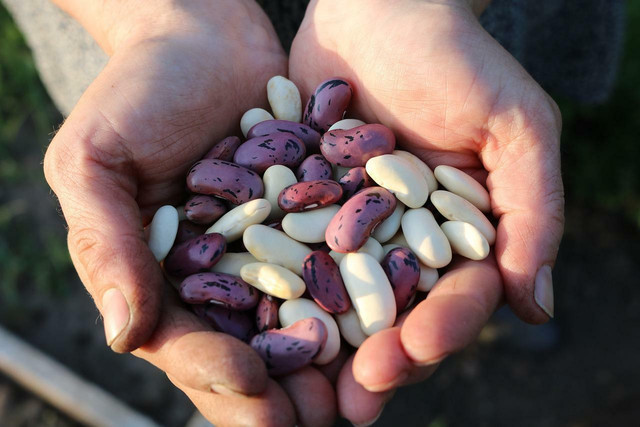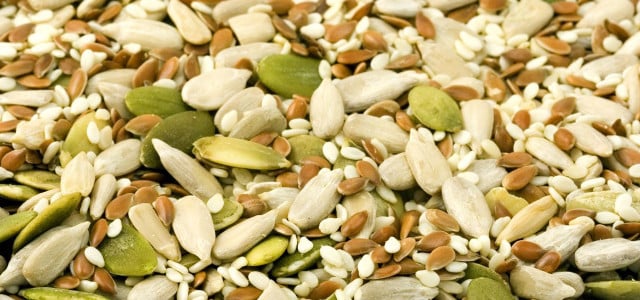Vegetarian and vegan diets are becoming increasingly popular due to their health and environmental benefits. We'll tell you the benefits and differences of both diets.
Vegetarianism and veganism are both plant-based diets. A vegetarian diet excludes meat, poultry, fish, and seafood, whereas a vegan diet excludes all meat and animal products (meat, poultry, fish, seafood, dairy, and eggs). Plant-based diets are becoming increasingly popular as people become more concerned with animal welfare, and with the environment. Plant-based diets provide well-established health and environmental benefits. We’ll tell you the benefits and drawbacks of a vegetarian vs. vegan diet.
Vegetarianism: The Benefits and Drawbacks

(Foto: CC0 / Pixabay / Sprinter_Lucio)
There are several variations of a vegetarian diet:
- Lacto-Vegetarian, which excludes meat, fish, poultry, and eggs, as well as foods that contain them.
- Ovo-Vegetarian, which allows for the consumption of eggs, but not dairy products.
- Flexitarian, which consists of primarily eating a vegetarian diet but occasionally eating meat or fish.
The health benefits of a vegetarian diet include:
- Improved Heart Health: Studies show that a vegetarian diet is linked to lower blood pressure, reduced risk of heart disease, and lower cholesterol. In comparison, a study by the University of Oxford shows that red and processed meat are linked to an increased risk of heart disease.
- Lower Risk of Type 2 Diabetes: Studies show that eating a vegetarian diet puts you at a 35 percent to 53 percent lower risk of developing diabetes.
- Lower Cancer Risk: Cutting out meat, in particular red meat, from your diet is linked to a reduced risk of developing cancer.
Things to watch out for:
- Iron: Iron is a concern for vegetarian diets, as research shows that vegetarians are more likely to acquire an iron deficiency than people who eat meat.
- Vitamin B12: B12 is another area of concern with vegetarian diets, as B12 mainly comes from animal products like beef and seafood. Vegetarians may need to increase their consumption of eggs, milk, fortified foods, or consider taking B12 supplements. You can buy B12 supplements on Amazon**.
Veganism: The Benefits and Drawbacks



(Foto: CC0 / Pixabay / Pexels)
For many people, veganism is much more than just a diet choice. Many vegans don’t only avoid eating animal products, but they also avoid buying any items that include animal products, such as beauty items, clothing, and cleaning products. Veganism as a lifestyle is rooted in deep concerns about the well-being of animals and the planet. It is a choice to dedicate your life to trying to cause as little harm as possible to living things, and the Earth.
Some positive health impacts of eating a vegan diet include:
- Lower Blood Sugar Levels: This can help prevent type 2 diabetes.
- Reduced Risk of Cancer: Vegans generally eat considerably more legumes, fruits, and vegetables than nonvegans, which contributes to a 15 percent lower risk of developing cancer.
- Lower risk of heart disease. Eating fresh fruits and vegetables, legumes, and fiber is linked to a lower risk of heart disease.
- Weight Loss: Many animal products are high in unhealthy fats and calories, which means replacing them with plant-based products can aid in weight loss.
The nutritional drawbacks of a vegan diet are similar to those of a vegetarian diet. To get your daily dose of iron and vitamin B12, you may need to take a supplement. Following a vegan diet also means that you might need to be a bit more intentional about getting enough protein. There are plenty of options, like nuts and legumes, tempeh, chickpea tofu, traditional tofu, seitan, or vegan protein powder.
Something else to consider is that many plant-based food products, such as dairy and meat alternatives, are heavily processed and can be very expensive. Also, remember to keep in mind that just because something is vegan does not automatically mean it is healthy or sustainable. Be sure to read the labels, and be conscious of where your food is coming from.
What Are the Environmental Impacts of Vegetarianism and Veganism?



(Foto: CC0 / Pixabay / Kanenori)
Research shows that plant-based diets are far more sustainable than diets that consist of animal products. They require less processing, less land, less energy input, and less water than raising and killing animals for food. According to a report from the United Nations’ Intergovernmental Panel on Climate Change, an increased number of people switching to a vegan or vegetarian diet has a high potential for reducing carbon emissions and could help mitigate climate change, as well as improve human health.
A report from the United Nations Environment Programme says that ‘animal products, both meat and dairy, in general, require more resources and cause higher emissions than plant-based alternatives. The study found that 57 percent of global greenhouse gas emissions from food production come from meat and dairy products, with beef contributing the most to global emissions. In comparison, just 29 percent of food-related global greenhouse gas emissions come from plant-based foods.
Read on:
- The Vegan Food Pyramid: 6 Steps to a Balanced Vegan Diet
- The Best Vegan Substitutes for Butter
- Raw Food Diet: Risks, Benefits & Easy Recipes
Do you like this post?








